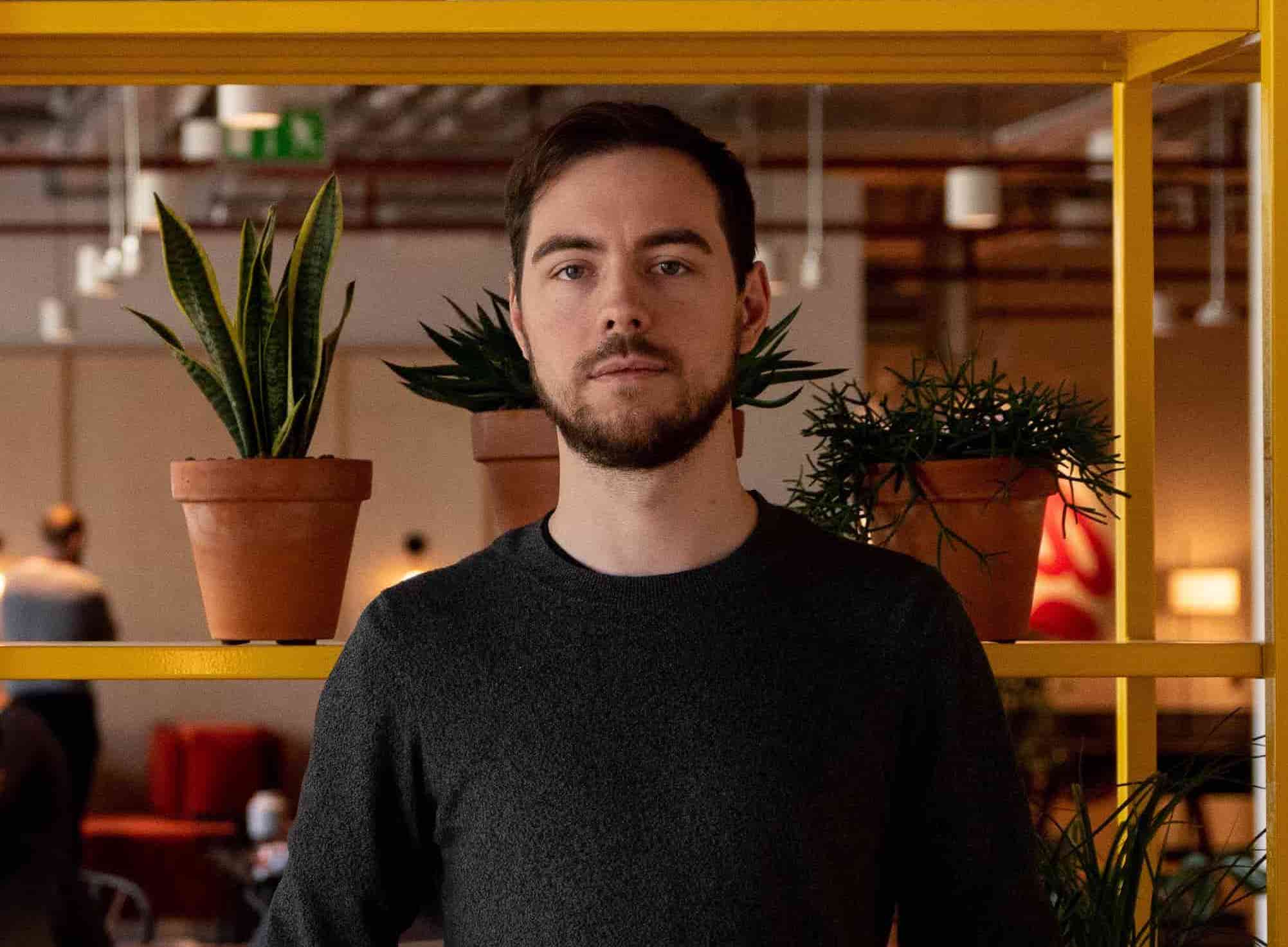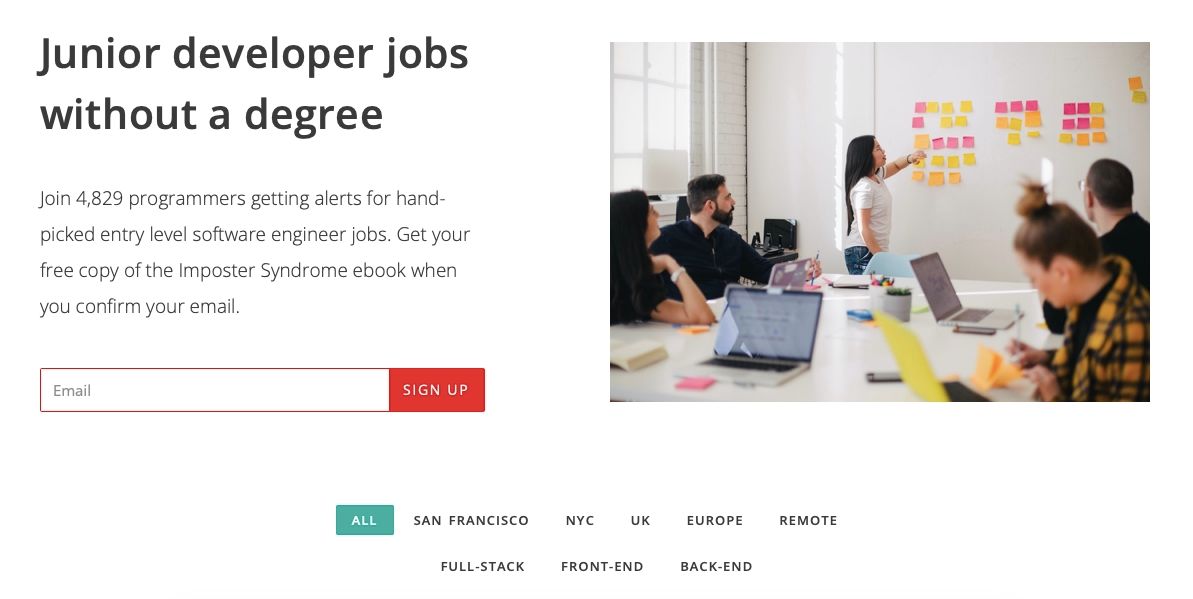Knowing how to design as well as code gives you a strong advantage as a software engineer. Bobby shares his advice on how to learn to code in this interview.
Hey, so can you introduce yourself?
Hi Pete, thank you so much for having me!
My name is Bobby Bobak, a full stack programmer with a degree in digital design.
I'm currently living in Manchester, England where I've been for the past decade or so, and was born in a small town located in the Tatra Mountains, south of Poland.
From a very young age I was into making things, and my parents have been inspiring me to get into entrepreneurship, designing things and appreciating great art.
I'm running a small company building apps and internal tools for record labels, and the music industry in general, as well as building digital products for consumers.
One of which is called Filtru Coffee, a nifty coffee app which helps people discover, learn and enjoy specialty coffee at the comfort of their home.

As a designer, why did you want to learn to code?
My journey with coding goes way back to when I was 12 years old.
One day my father bought a computer and I have been captivated by it ever since.
As a kid the first thing you want to do on a computer is to play some games, sadly the PC we had was more of a home office type computer so I couldn't enjoy all the fancy 3D games at the time.
What I did instead, was to install apps and tools from various PC magazines at the time, to see what I can do with it.
Little did I know these apps will help me make my own games, 3D animations, and applications.
How did you learn coding?
It all started with making simple games using a very old Windows 95 application called Klik & Play. It was a PowerPoint-like editor to make simple board games.
You could add actions, triggers and animate characters, so I've made a driving game called "Mafia In the City" and gave copies out to friends and other kids in my primary school - it was a hit!
This didn't really require any knowledge of a programming language, but it definitely got me into learning more about what programming languages are, and how I can make better games.
After that, I went into a high profile arts high school, where I'd learn a lot about creative arts, such as drawing, wood carving, calligraphy and graphic design. It was one of the best experiences of my life as it made me aware of aesthetics, visual hierarchy and colour theory.
At the time I didn't really want to do much with computers, the school's aim was to push people into more traditional arts professions, they didn't have much teaching material in digital design, and I really wanted to go into graphic design.
With the rise of broadband in Poland a web-based online multiplayer game called OGame got really popular in my school. One afternoon a number of my friends came to me and asked if I could make a game like that, because they have ideas on how we could make it cooler.
We sat down, worked out the mechanics, set a theme and that evening I started learning HTML, CSS and basics of PHP, within 3 months we had a working game with a World War 2 theme.
Since then I've always thought of coding as a tool for realising creative ideas, turning designs into working products, and this approach has massively helped me at university.
With the knowledge of front-end and back-end development I was able to show working prototypes and get top marks for all my assignments.
You can improve your coding skills by taking one of the very popular courses by Wesbos. He is a self-taught developer who offers a huge amount of courses including Javascript for Beginners, Learn Node, React for Beginners and Advanced React. (Affiliate)
Do you have any tips for designers who want to learn coding?
My two top tips for designers, or anyone learning to code, is to start a small side project, and stay persistent. Small projects are the best types of creative outlets, they're personal and are a great motivator for experimenting with ideas.
Whether you're building a web, or a mobile app, there are countless resources to help you learn the basics of programming. It can be quite off-putting at first seeing syntax errors with every keystroke, and that's where persistence is key. Going through the hurdles of building an app, and eventually finishing it, can be a turning point for getting better at it.
Do you have some design tips for developers?
As developers we tend to focus on the way things work rather than they look, and I totally understand that it can be sometimes tricky to come up with an aesthetically pleasant, and easy to use user interface.
My top design tip for any programmer is to familiarise yourself with basics of visual hierarchy, such as typographic scale, and grid layouts. They served as blueprints for many designers simplifying the workflow of arranging content on a canvas. Now they can help us arrange pieces of built functionality, making it easier for an unfamiliar person to use.
A well laid out UI, with a visual rhythm leading the user through an app's window to a desired actions makes a world of difference.
Can you tell us about your coffee startup Filtru?
Filtru has been my side project for the past 4 years and it's continuously becoming a centre of my attention.
It is a mobile app designed to help people consistently make better coffee. It offers step by instructions on how to prepare 9 brew methods, a community feed of brew guides, and a one-stop shop for buying freshly roasted coffee with a tap of a button.
When at university I've spent most of my time co-working with other developers from local coffee shops, where specialty coffee was the thing to drink. The more I've learned about it the more I realised it's much more than just a fancy coffee. It's ethically sourced and of better quality.
Every coffee barista has their own way of brewing coffee, some play with the time intervals, other with the amount of water to coffee, and watching one prepare it can be quite a science show.
At the time an Apple Watch has just been revealed and I really wanted to explore it as a platform for apps. A coffee timer that would tap your wrist at specific intervals, making you follow World Barista Champion's recipe was my first idea.
The prototype worked great, but I soon realised it needs to be much more accessible. I've built the iPhone and iPad apps and a few months later started working on an integration with Bluetooth scales, to precisely guide someone on how to make that consistent pour-over coffee.
When I've released the app I didn't expect much from it, but pretty soon the downloads started soaring and I've started taking this project more seriously. Last year, partnering with local coffee roasters, I built an e-commerce platform where coffee roasters can tell their story, share the coffees they have sourced and roasted, as well as learn from the consumers on how the coffee has been received.
This year, after spending some time at coffee festivals training people to make coffee, and talking to consumers I saw a clear need for improving Filtru in the educational aspects.
With Apple's push for Augmented Reality I think Filtru can help visualise the process of making coffee much better than text instructions can, so currently I'm building the next version of the mobile apps, as well bringing the community feed to the web.
What are your career goals for the future?
I would love for Filtru to become my full-time gig, allowing me to focus on the more creative side of building products.
The coffee industry has so much to offer, and there are stories of so many people that work really hard to help you drink this coffee. I'd love to amplify those stories through technology.
If anybody's curious about specialty coffee, or would like to have a go at making AeroPress coffee check out Filtru or check out my Twitter
Thanks for the interview!
If you enjoyed this article please send it to a friend




